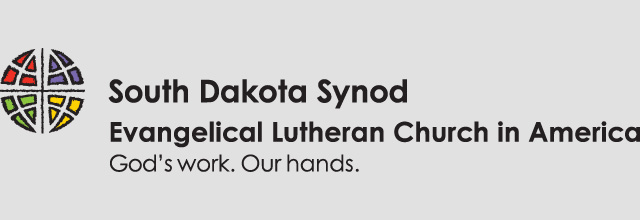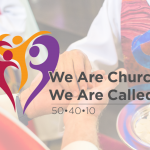
Devotions for the week of: July 29, 2020
Reading: John 8:1-11 (NRSV)
. . . while Jesus went to the Mount of Olives. Early in the morning he came again to the temple. All the people came to him and he sat down and began to teach them. The scribes and the Pharisees brought a woman who had been caught in adultery; and making her stand before all of them, they said to him, “Teacher, this woman was caught in the very act of committing adultery. Now in the law Moses commanded us to stone such women. Now what do you say?” They said this to test him, so that they might have some charge to bring against him. Jesus bent down and wrote with his finger on the ground. When they kept on questioning him, he straightened up and said to them, “Let anyone among you who is without sin be the first to throw a stone at her.” And once again he bent down and wrote on the ground. When they heard it, they went away, one by one, beginning with the elders; and Jesus was left alone with the woman standing before him. Jesus straightened up and said to her, “Woman, where are they? Has no one condemned you?” She said, “No one, sir.” And Jesus said, “Neither do I condemn you. Go your way, and from now on do not sin again.”
They are funeral directors. I was a pastor. The three of us worked together too often. We became friends. When they hired another director to work with them, they hired a woman. I asked them how that was working out. They said at first people were a bit hesitant; this was new, a change. Men were funeral directors. Any women on the staff answered the phone, made coffee, or greeted the guests. Women did not prepare the body, direct the pall bearers, lead the parade of cars out to the cemetery.
But she did. She did all of that and she did it very well. And she did more. They said, she did something they had never done. She hugged the grieving.
On that day long ago, Jesus was not confronted by a committee or a delegation. This was a mob. A mob made up of individuals who have forgotten who they are. It is no longer “I.” It is only “we.” And “we” have only one motive, one desire . . . to do another human being harm.
I grew up watching movie westerns. Now I have already lost some of you. But know that a western is pretty much Star Wars with different clothes and a space ship instead of a horse.
I remember a scene in one western movie. A mob (all men, of course), yelling, demanding, rope in hand, comes to the jail to get the prisoner out in order to hang him. The lawman confronts the mob, then he begins to name each one, remind each one of his family, his history in the community, his relationship to the lawman. Finally, one man, remembering who he is, leaves. Then another and another, until there is only the one, the leader who has no one following him. The lawman does not prevent violence with more violence. In his own way, with understanding, with compassion, and with words, the lawman hugs each one.
What is Jesus writing in the dirt? I have no idea. But perhaps that is not the point. Writing in the dirt takes time. It is like a recess or maybe a sabbath. The mob takes a rest from their labor. Jesus is giving each one time. Time to think, time to consider what he is doing, time to see himself and ask, “Is this who I am?” “What if this were my sister, my daughter?”
Jesus does not gather his followers for battle; he never does. Stopping violence with violence is like the parent who teaches the child not to hit by hitting the child. Rather, like my funeral director friend, or like the lawman in that long forgotten western film, Jesus hugs each one.
I am guessing he learned it from his mother.
And then Jesus tells a joke. “Where are they? I don’t see them. Do see them?” And the woman smiles back. “No, I don’t see them either.”
I like to think they were both laughing. Which, I believe, is one of the benefits of forgiveness.
Pastor Gary A. Westgard, retired Yankton, SD
Prayer of St. Francis
Lord, make me an instrument of your peace:
where there is hatred, let me sow love;
where there is injury, pardon;
where there is doubt, faith;
where there is despair, hope;
where there is darkness, light;
where there is sadness, joy.
O divine Master, grant that I may not so much seek
to be consoled as to console,
to be understood as to understand,
to be loved as to love.
For it is in giving that we receive,
it is in pardoning that we are pardoned,
and it is in dying that we are born to eternal life.
Amen.
Want to receive devotions each week in your inbox?
Click the link below to sign-up for weekly devotions from the South Dakota Synod.


